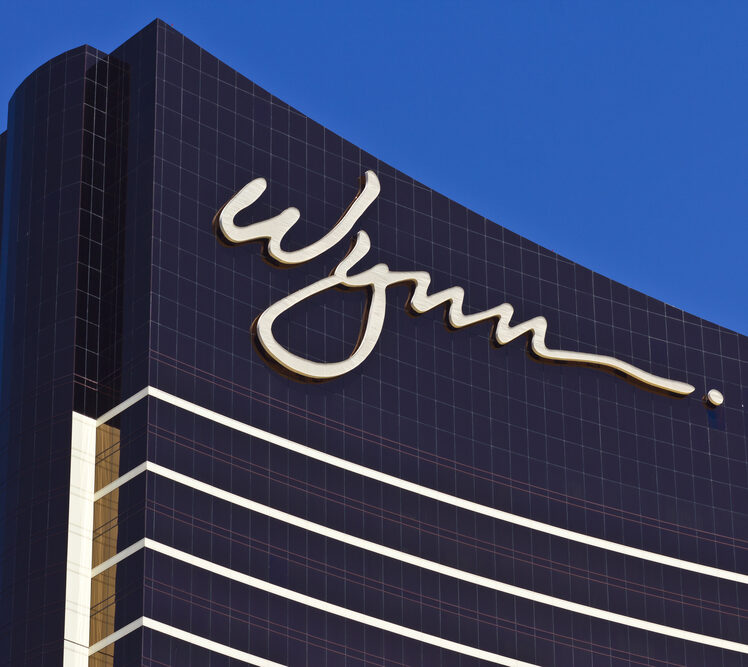- Casino News
- USA News
Wynn Las Vegas has $5.5 Million Investment Approved


Political Pressure Mounts
After intense hearings probing anti-money laundering (AML) practices on the Las Vegas Strip, the Nevada Gaming Commission (NGC) voted 4-1 to approve a $5.5 million settlement with Wynn Las Vegas. The settlement, part of a broader regulatory response to systemic compliance failures, follows a non-prosecution agreement (NPA) between Wynn and the U.S. Justice Department in September 2024, under which the casino forfeited $130 million.
| Key Aspect | Details |
|---|---|
| Settlement Amount | $5.5 million approved by NGC |
| Federal Forfeiture | $130 million under DOJ non-prosecution agreement |
| NGC Vote | 4-1 in favor; Commissioner Rosa Solis-Rainey dissented |
| Primary Allegation | Conspiracy with unlicensed money transmitting businesses |
| Key Individual | Juan Carlos Palermo, Argentinian MTB operator |
| Duration of Violations | Approximately 9 years through 2020 |
| Other Recent Actions | Fines against Resorts World Las Vegas ($10.5M) and MGM Resorts ($8.5M) |
A Blow to Reputation and Regulation
The complaint centers on Wynn's dealings with unlicensed money transmitting businesses (MTBs), which facilitated tens of millions of dollars in casino patron transactions without proper registration or oversight. Prosecutors allege Wynn conspired with these MTBs to transfer $130 million over nearly a decade, enabling patrons to move funds through underground financial networks while bypassing federal laws.
The Role of Unlicensed Agents
Central to the case is Juan Carlos Palermo, an Argentinian national who operated multiple unregistered MTBs. Court filings show Palermo managed at least 200 transfers totaling $17.7 million for around 50 Wynn patrons, involving international clients across at least 15 countries, including Hong Kong, UAE, and the Cayman Islands. Palermo pleaded guilty in 2022 under a deferred prosecution agreement.
Wynn’s own internal investigations found several employees responsible for facilitating these transactions, many of whom were terminated years ago. Wynn officials maintain these rogue employees acted without company endorsement and that the casino severed ties with implicated parties promptly.
Regulatory filings reveal Wynn’s inconsistent enforcement of AML policies. For example, in mid-2014 Wynn rejected a suspicious transfer from a third-party entity linked to an independent agent but accepted another transaction from the same agent through a different entity days later. The casino’s then-policy allowed independent agents to pay off patrons' outstanding markers—a legal but risky practice.
Despite blacklisting two entities associated with these transactions in 2015, Wynn continued to process funds through a Bank of America account controlled by the same agent until 2021. It was only then that Wynn concluded the agent had crossed the line from independent contractor to an unlicensed money service business by charging commissions to patrons.
Commissioner Solis-Rainey sharply criticized Wynn for failing to detect suspicious activity and for maintaining business relationships with flagged entities for years.
Proxy Gambling and “Flying Money” Schemes
The complaint also highlights the use of proxy gambling, or “human head” schemes, where a permitted gambler plays on behalf of a banned individual, often receiving real-time instructions from the sideline. Wynn allegedly allowed millions of dollars to be gambled through such methods.
Further, prosecutors describe “flying money” schemes whereby unlicensed money processors facilitated cash transfers to Wynn patrons who could not easily access US currency, using a network of intermediaries to move funds clandestinely.
Context
This settlement marks the third recent major AML-related penalty by the NGC on Strip casinos this year. In March, Resorts World Las Vegas accepted a $10.5 million fine for AML deficiencies linked to an illegal sports betting ring involving bookmaker Matt Bowyer and former interpreter Ippei Mizuhara. Shortly after, MGM Resorts agreed to an $8.5 million fine amid allegations involving the same bookmaker.
Unlike those cases, Wynn’s violations pertain specifically to Title 18 USC Section 1960, which addresses unlicensed money transmitting businesses, not directly to violations of the Bank Secrecy Act (BSA). Wynn's legal team emphasized the distinction, noting the company was not accused of facilitating illegal sports betting or laundering funds.
Though the settlement closes this chapter for Wynn, enforcement actions against several bookmakers, including Bowyer, remain pending. The NGC has also deferred decisions on related parties such as Nicole Bowyer, accused of profiting from her husband’s bookmaker operations.
Meanwhile, the Commission granted a temporary license to Maurice Wooden, president of Fontainebleau Las Vegas, despite ongoing AML inquiries involving customer credit transactions at that property.
These allegations are a body blow—not just to Wynn’s reputation, but to the integrity of the Nevada Gaming Commission itself.
Conclusion
The Wynn settlement reflects growing regulatory impatience with entrenched AML compliance failures among major casino operators on the Las Vegas Strip. While Wynn accepts responsibility for the violations, critics highlight the persistence of risky practices and question whether penalties are sufficient deterrents. With multiple investigations ongoing, Nevada regulators face increasing pressure to tighten oversight and restore confidence in the integrity of the state’s gaming industry.








